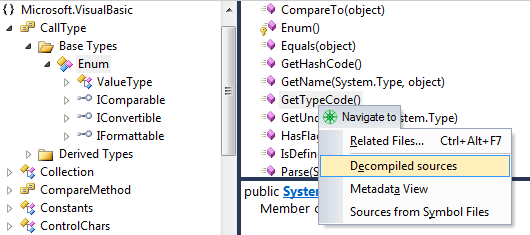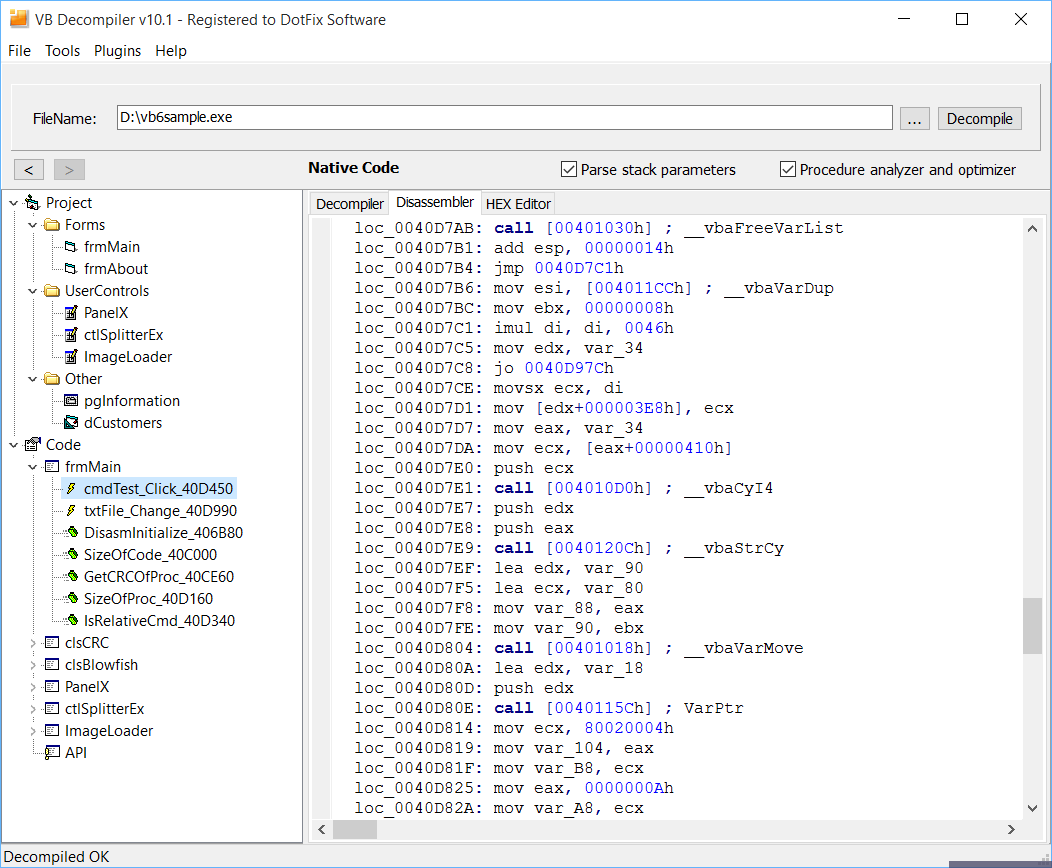

Contents • • • • • • • • • • • • • • Introduction [ ] The term decompiler is most commonly applied to a program which translates programs (the output from a ) into in a (relatively) which, when compiled, will produce an executable whose behavior is the same as the original executable program. By comparison, a translates an executable program into (and an assembler could be used to assemble it back into an executable program). Decompilation is the act of using a decompiler, although the term can also refer to the output of a decompiler. It can be used for the recovery of lost source code, and is also useful in some cases for, and.
May 03, 2012 VB6 Decompilation. It's just my luck, of course, not to have the source files so someone here suggested a decompiler for Visual Basic 6. VBReFormer Professional. VBReFormer is a powerful and essential recovery tool for Visual Basic 5 & 6 application. Decompiler, disassembler and design editor at the same time, VBReFormer is an essential tool for professionals and companies who work with older versions of their Visual Basic 5/6 applications.
The success of decompilation depends on the amount of information present in the code being decompiled and the sophistication of the analysis performed on it. The bytecode formats used by many virtual machines (such as the or the ) often include extensive and high-level features that make decompilation quite feasible. The presence of can make it possible to reproduce the original variable and structure names and even the line numbers. Without such metadata or debug data is much harder to decompile. Some compilers and post-compilation tools produce (that is, they attempt to produce output that is very difficult to decompile). Live Surface Torrent. This is done to make it more difficult to the executable. Design [ ] Decompilers can be thought of as composed of a series of phases each of which contributes specific aspects of the overall decompilation process.
Loader [ ] The first decompilation phase loads and parses the input machine code or program's binary file format. It should be able to discover basic facts about the input program, such as the architecture (Pentium, PowerPC, etc.) and the entry point. In many cases, it should be able to find the equivalent of the main function of a program, which is the start of the user written code. Magic Training Arena Bot *cracked* Updated on this page. This excludes the runtime initialization code, which should not be decompiled if possible. If available the symbol tables and debug data are also loaded. The front end may be able to identify the libraries used even if they are linked with the code, this will provide library interfaces.
If it can determine the compiler or compilers used it may provide useful information in identifying code idioms. Disassembly [ ] The next logical phase is the disassembly of machine code instructions into a machine independent intermediate representation (IR). For example, the Pentium machine instruction. Cdq eax; edx is set to the sign-extension of eax xor eax, edx sub eax, edx could be translated to eax:= abs(eax); Some idiomatic sequences are machine independent; some involve only one instruction. For example, xor eax, eax clears the eax register (sets it to zero). This can be implemented with a machine independent simplification rule, such as a = 0. In general, it is best to delay detection of idiomatic sequences if possible, to later stages that are less affected by instruction ordering.